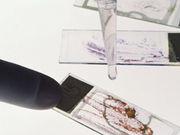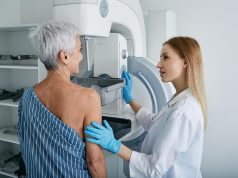Review: pooled sensitivity of HPV 16/18 genotyping for CIN3+ about 70 percent for ASC-US or LSIL
THURSDAY, Nov. 17, 2016 (HealthDay News) — Testing for human papillomavirus (HPV) 16/18 has poor sensitivity for triaging women with minor abnormal cytology, according to a meta-analysis published online Nov. 15 in the Annals of Internal Medicine.
Marc Arbyn, M.D., from the Scientific Institute of Public Health in Brussels, and colleagues conducted a systematic literature review to examine the accuracy of genotyping for HPV types 16 and 18. Data were included for 24 moderate-to-good quality studies, involving 8,587 women with atypical squamous cells of undetermined significance (ASC-US) and 5,284 with low-grade squamous intraepithelial lesions (LSIL) who were triaged with tests for high-risk HPV (hrHPV) and HPV 16/18 to detect cervical intraepithelial neoplasia (CIN).
The researchers found that for women with either ASC-US or LSIL the pooled sensitivity of HPV 16/18 genotyping for CIN3+ was about 70 percent. With a threshold of grade <2 CIN, the pooled specificities were 83 and 76 percent, respectively, for women with ASC-US and LSIL. In HPV 16/18-positive women with ASC-US and LSIL, the average risk for CIN3+ was 17 and 19 percent, respectively, and was 5 percent in hrHPV-positive but HPV 16/18-negative women with ASC-US or LSIL.
“Testing for HPV 16/18 to triage women with minor abnormal cytology is poorly sensitive but may be useful as a second triage test after hrHPV testing, with direct referral if the woman is positive for HPV 16/18,” the authors write.
Several authors disclosed financial ties to the biopharmaceutical industry.
Full Text (subscription or payment may be required)
Copyright © 2016 HealthDay. All rights reserved.








